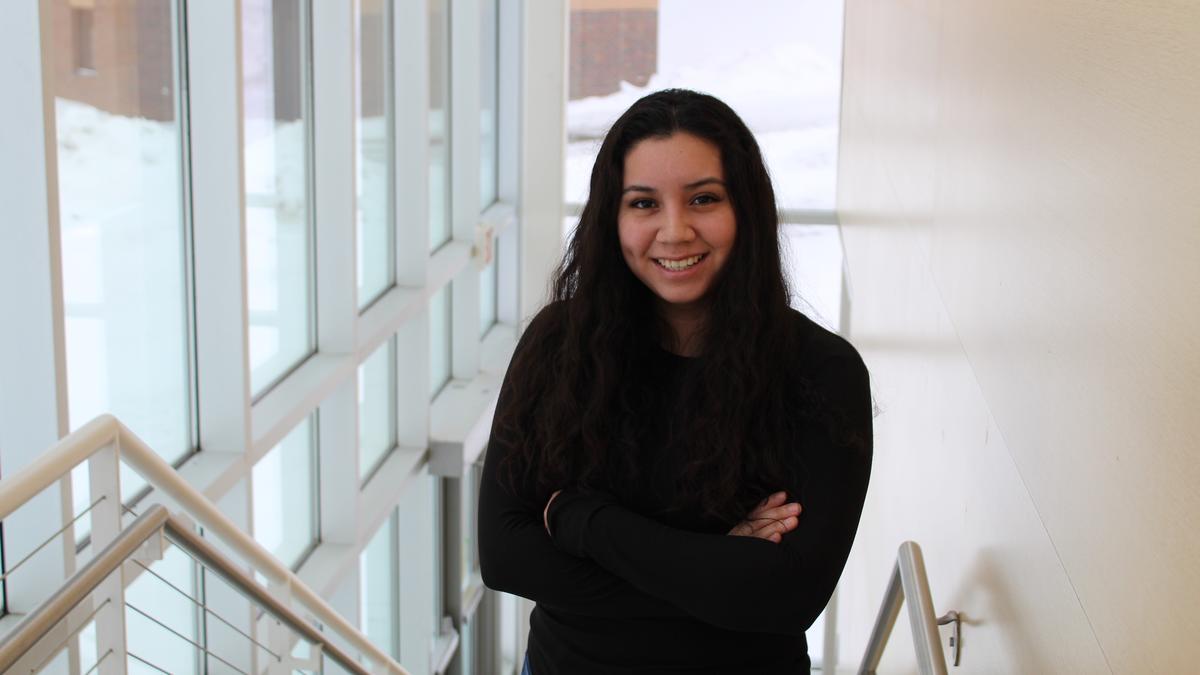The bright hospital lights beam. Computer keys echo through the silence. Francisca Orellana-Barrera stands next to her mother’s hospital bed and holds her hand.
When Orellana-Barrera was 14 years old, her mother was diagnosed with cancer. Her mother was in and out of the hospital frequently, and Orellana-Barrera felt the fear. She says when she went “to doctors appointments with my parents, they would always leave with unanswered questions because they didn't want to waste the doctor’s time,” Orellana-Barrera said.
This frustration is a reality for many immigrants, such as Orellana-Barrera’s parents who came to the United States from Chile, without strong skills in speaking English. It’s one of the many reasons why Orellana-Barrera is pursuing a biochemistry major and biochemical engineering minor as a junior year UMD.
She aspires to go into medical school after finishing her undergraduate degree. She wants to practice medicine, and she wants to help patients who need translators. She understands, all too clearly, their bewilderment in a medical setting.
Tutoring
In addition to school, Orellana-Barrera is also busy keeping in touch with her roots. She tutors three elementary-school students in Spanish.
Orellana-Barrera’s tutoring experience began when her mom’s friend, who lives in Duluth, reached out to her with a question. “Are you comfortable teaching Spanish to student’s from Lowell Elementary School?” Orellana-Barrera said yes. She was willing to help out with the children’s experience. Although she knew she didn’t know everything about the Spanish language, she felt confident in herself.
“I felt like I could do it because… my mom teaches Spanish.” Orellana-Barrera says. “All my life I've been going to [classes and] tutoring sessions at my mom's school.” Orellana-Barrera is impressed with her mom’s skill. “Even though she knows [almost] no English, she's able to teach people in Spanish.”
Orellana-Barrera has been working with three elementary school students in 2020 and 2021. She follows coronavirus safety practices and goes over to their houses because the kids learn more with an in-person teacher. She says, “The kids perform and learn better” when they can see her movements and watch her lips make the sounds.
She also feels like she is learning by tutoring these children. Since she is no longer at home with her parents and speaking Spanish more than half the day, she is using Spanish less and less in everyday life. She feels it slowly slipping away.
There’s another change. “I didn’t have an [American-English] accent before while I spoke Spanish, but now I’m starting to have one,” Orellana-Barrera says. “I’m trying to get rid of that.”
Fun and Work
Besides keeping in touch with her roots, Orellana-Barrera spends some of her time at UMD playing on the Women’s Rugby team. She joined the club when she was a freshman and has “fallen in love” with the sport.
Studying and school are incredibly important to Orellana-Barrera, as she keeps medical school in the back of her mind. Her ultimate goals are to become a pathologist or a doctor and to help Spanish speakers to feel understood while in the medical system. As she studies, she keeps her parent’s hardship in mind to motivate her.
“My parents came [here]... they left their whole family behind, just for me to go to school,” Orellana-Barrera says. “That’s what gets me through everything.”
- - - -
About the UMD Biochemistry Major and the Biochemistry Engineering Minor.
UMD student Sara Guymon, who is a journalism student, wrote this article. Sara works with Cheryl Reitan in University Marketing and Public Relations.
